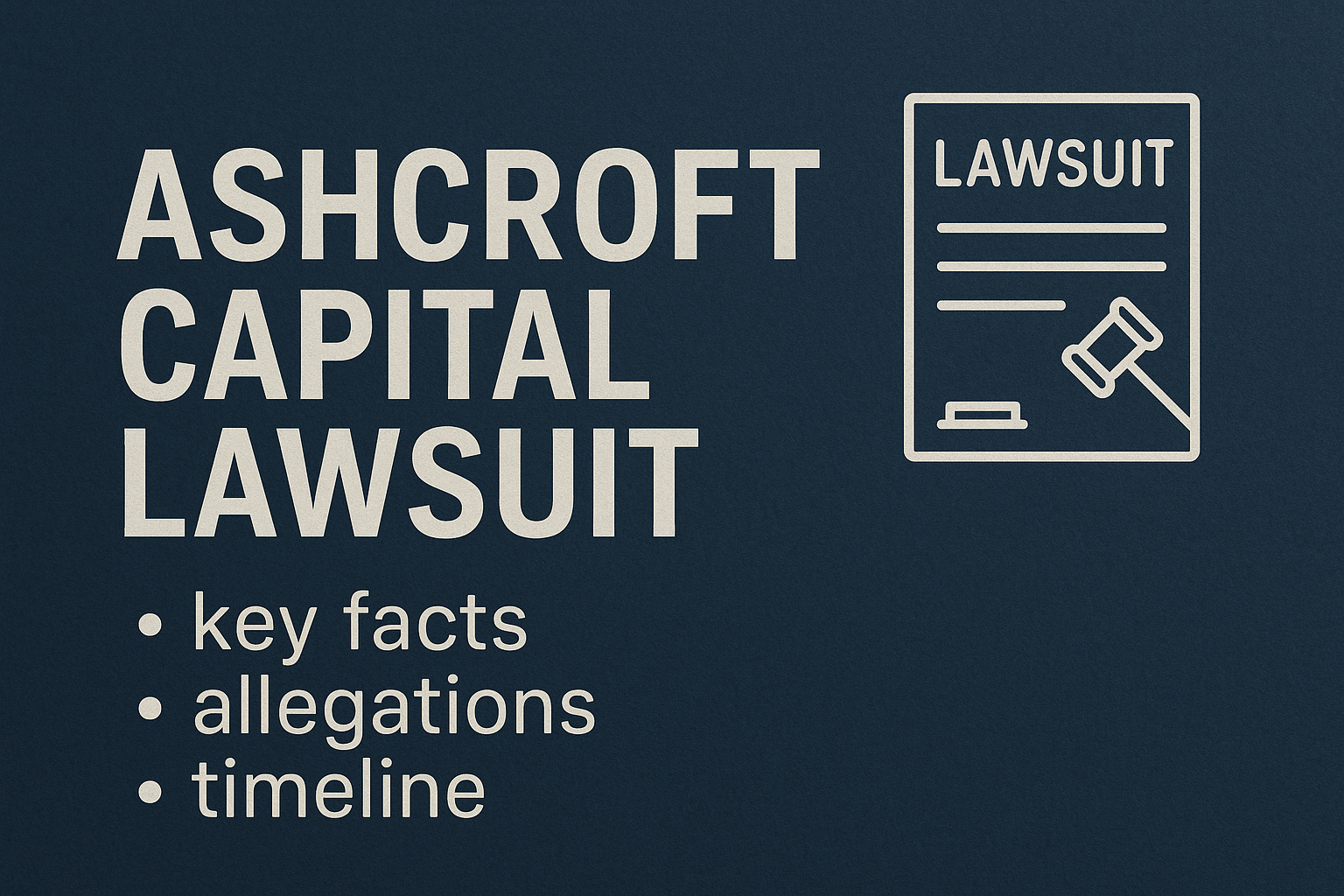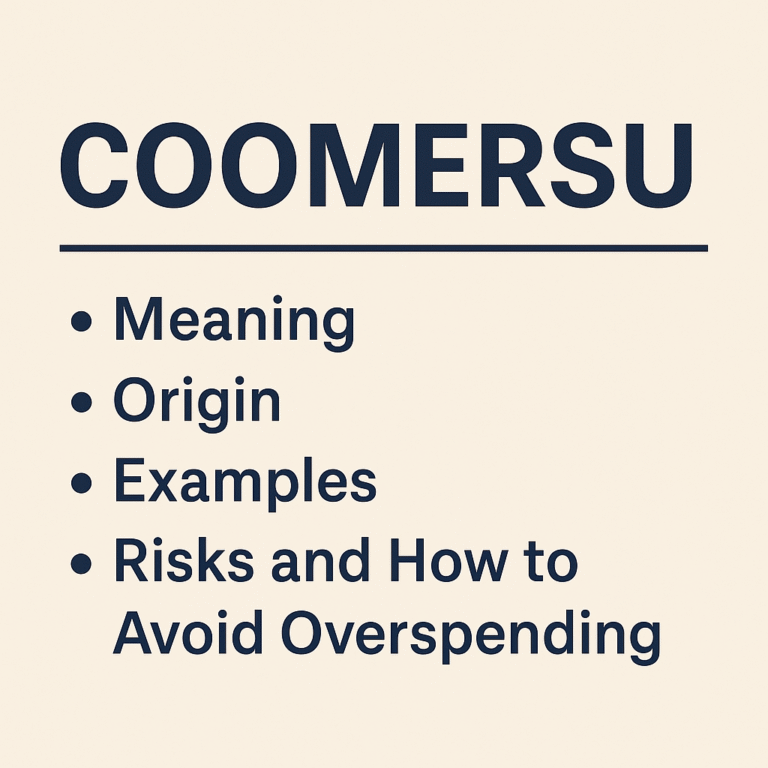Ashcroft Capital Lawsuit: Facts, Claims, and What It Means for Investors
In February 2025, a group of investors filed a lawsuit against Ashcroft Capital and its affiliate, Ashcroft Legacy Funds, LLC.
The case is called Cautero v. Ashcroft Legacy Funds, LLC. It is being heard in the U.S. District Court for the District of New Jersey.
The lawsuit has drawn a lot of attention from the real estate investment world.
It raises questions about how sponsors communicate with investors, how returns are shown, and how funds are managed.IDGod
Case Overview
Key Facts
| Detail | Information |
|---|---|
| Case Name | Cautero v. Ashcroft Legacy Funds, LLC |
| Court | U.S. District Court, District of New Jersey |
| Filed On | February 12, 2025 |
| Main Judge | Hon. Evelyn Padin |
| Magistrate Judge | Cathy L. Waldor |
| Plaintiffs | About 12 accredited investors |
| Defendant | Ashcroft Legacy Funds, LLC part of Ashcroft Capital |
| Damages Sought | Around $18 million not confirmed in court filings |
| Case Type | Civil – fiduciary duty and possible securities issues |
Main Claims by the Plaintiffs
The investors accuse Ashcroft Capital of several things.
These claims fall into four main groups:
Inflated return numbers
Projected Internal Rates of Return IRR were allegedly too high by 4–6%.
These numbers appeared in offering documents, investor webinars, and marketing materials.
Poor communication
Delays in telling investors about problems.
Late or missing updates on property performance.
Limited explanation of large capital calls.
Breach of fiduciary duty
Using investor money for purposes not listed in agreements.
Taking refinancing fees when performance was weak.
Some sources claim funds from different projects were mixed (not confirmed in court).
Possible securities law violations
Alleged false or missing information during investment offers.
Could involve federal rules like SEC Rule 10b-5.
Ashcroft Capital Response
Ashcroft Capital denies all claims. The company says:
All projections came with clear risk warnings and disclaimers.
Poor performance was caused by outside market factors like high interest rates, inflation, and falling property values.
The company has always followed SEC rules and industry standards.
Where the Case Stands Now
The lawsuit is in the discovery stage.
This is when both sides exchange documents and information.
Case Timeline
| Date | Event |
|---|---|
| Feb 12, 2025 | Case filed in federal court |
| May–July 2025 | Early discovery steps and scheduling |
| Aug 5, 2025 | Discovery compliance hearing |
| Sept 12, 2025 | Mediation pre-conference |
| Q1 2026 | Possible trial date if no settlement |
What Could Happen Next
There are several possible outcomes:
| Outcome | What It Means |
|---|---|
| Settlement | Both sides agree to end the case, often with payment but no admission of guilt. |
| Win for Plaintiffs | Investors could get damages; court might require changes to business practices. |
| Win for Defendant | Case is dismissed or Ashcroft wins in court; no changes required. |
| Regulatory action | Even if Ashcroft wins, the SEC or others could investigate. |
Why This Case Matters
This case is about more than just one group of investors.
It shows the challenges that can come up in real estate syndication, especially when the market changes.
Investor Concerns
Are projected returns realistic?
Are updates sent often and on time?
Are capital calls explained well?
Are funds managed exactly as promised?
Industry Context
High interest rates and rising costs have hurt many real estate deals.
Some sponsors have paused distributions or made sudden capital calls.
Trust between sponsors and investors is under pressure.
The Capital Call Issue
A 19.7% capital call in 2024 is part of the story.
A capital call means investors must put in more money to keep the project going.
Problems with capital calls:
They can surprise investors if not explained early.
They can feel unfair if projections were very positive before.
They often happen when cash flow is already low.
Lessons for Investors
Here are key points investors can learn from this case:
Before and After Investing
Check the numbers Understand how returns are calculated and what assumptions are made.
Watch communication See how often and how clearly the sponsor sends updates.
Read the fine print Know what agreements allow in terms of fees and capital calls.
Spread risk Don’t put all your money with one sponsor or in one project.
Keep records Save emails, updates, and agreements.
How the Industry Could Change
If the claims are proven or even if the case settles there may be changes in the real estate investment world.
| Possible Change | Effect |
|---|---|
| Stricter SEC rules | More checks on offering documents and marketing. |
| Lower projections | Sponsors give more cautious return estimates. |
| Better reporting | Regular, detailed updates become the norm. |
| Stronger fund rules | Clear separation of money between projects. |
Frequently Asked Questions
What is the Ashcroft Capital lawsuit about?
It is a legal case filed by a group of investors against Ashcroft Capital’s affiliate, Ashcroft Legacy Funds, LLC.
The investors say the company gave overly high return projections, did not share bad news quickly, and may have broken its duty to manage funds properly.
When was the lawsuit filed?
The lawsuit was filed on February 12, 2025 in the U.S. District Court for the District of New Jersey.
Who is suing Ashcroft Capital?
The plaintiffs are about 12 accredited investors who invested money in Ashcroft’s real estate funds. They say they lost money because of the company’s actions.
How much money are the plaintiffs asking for?
Reports say the investors are seeking around $18 million in damages.
However, the exact number has not been confirmed in official court records.
What stage is the case in now?
The case is in the discovery phase, where both sides exchange documents and information.
A discovery hearing is planned for August 5, 2025, and mediation is set for September 12, 2025.
Could the case settle before trial?
Yes. Many lawsuits like this end in a settlement before going to trial.
This could involve payment to the investors without Ashcroft admitting guilt.
Conclusion
The Cautero v. Ashcroft Legacy Funds, LLC case is still in progress.
It may end in a settlement, a trial win for the investors, or a win for Ashcroft Capital.
But no matter the outcome, it is already a warning sign for the industry.







